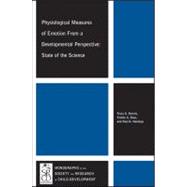
Note: Supplemental materials are not guaranteed with Rental or Used book purchases.
Purchase Benefits
What is included with this book?
Paul D. Hastings is Professor of Psychology at the Center for Mind and Brain at the University of California Davis. His research is focused on the transactional and bidirectional contributions of children’s regulatory systems and socialization experiences to trajectories of social and emotional development, with particular emphasis on empathy and prosocial behavior, inhibition and anxiety, and aggression and disruptive behavior.
The New copy of this book will include any supplemental materials advertised. Please check the title of the book to determine if it should include any access cards, study guides, lab manuals, CDs, etc.
The Used, Rental and eBook copies of this book are not guaranteed to include any supplemental materials. Typically, only the book itself is included. This is true even if the title states it includes any access cards, study guides, lab manuals, CDs, etc.